Sailor Moon: a Teacher and Friend
By Alyssa Skof
October 29, 2021
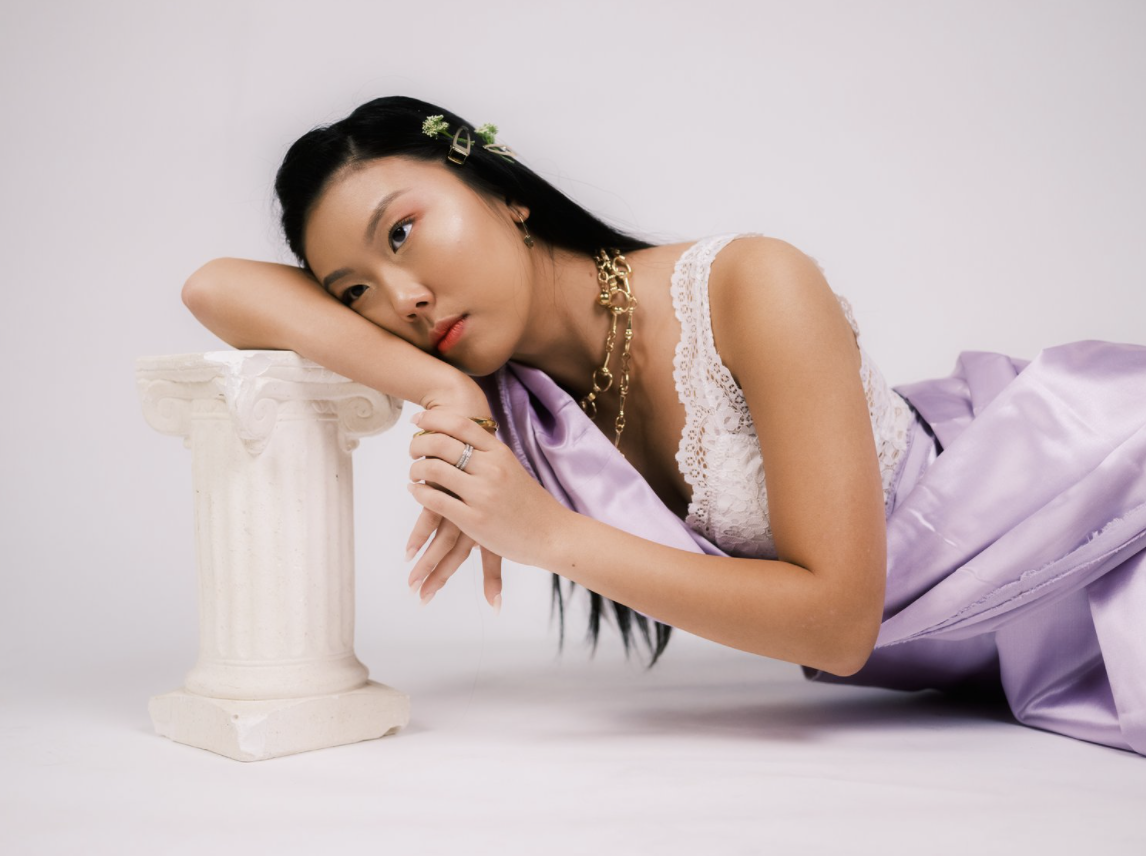
Photo by
Kaushik Kalidindi
As a young girl, for just a second, I told myself I hated the color pink.
I truly despised it at the time, but for all the wrong reasons. Pink, I thought, symbolized weakness, prettiness, and worst of all, being girly. I believed that if I hated pink, I could somehow banish all possibilities of these labels. However, I knew deep down that I didn’t have any issue with the color itself, and even deeper down I think I knew I had always liked pink. But when you are born a girl, one of the inevitable steps in your development is this moment of realization that being feminine was something to be embarrassed about.
For me, the realization hit me when I was five. The first instance was with my pink gameboy, which I religiously played Mario Kart with under the alias, “PinkBunny27”. I never won and soon resulted in cheats to help me. My older cousins teased, “You play like a girl!”. As the youngest sister and cousin, I believed anything my older relatives told me, and as a result, I began to resent my gender.
Vividly, I recall one of the many Sundays I spent at my cousins’ house. They shunned me when they played Runescape upstairs, a game that I was not allowed to partake in. Only boys or “tomboys” could play a medieval role-playing game, not little girls who liked pink. Being girly seemed to be my downfall, and I hated myself everyday for it.
Outcasted and alone, I flicked on the TV and settled myself into the leather sofa, fit to sulk for the rest of the day. Flipping through the channels to find something more interesting than the news, I stumbled across the title: “The Crybaby: Usagi’s Beautiful Transformation”. As a certified crybaby myself, I couldn’t resist clicking.
An animated girl with long blonde hair flickered on the screen and introduced herself as Usagi Tsukino, a klutz and a crybaby. Immediately, I saw myself mirrored in Usagi’s character and everything she did. Like me, she was tired all the time, cried when she was teased, failed her tests, and more importantly, she was obsessed with the famous female-warrior, Sailor V. Until this moment, I had never seen anyone worship femininity, but I was awed and admittedly a little jealous that she did it so freely. Everywhere I went I felt ashamed of being girly, but here was Usagi, freely telling everyone she had a girl-crush. Life felt unfair.
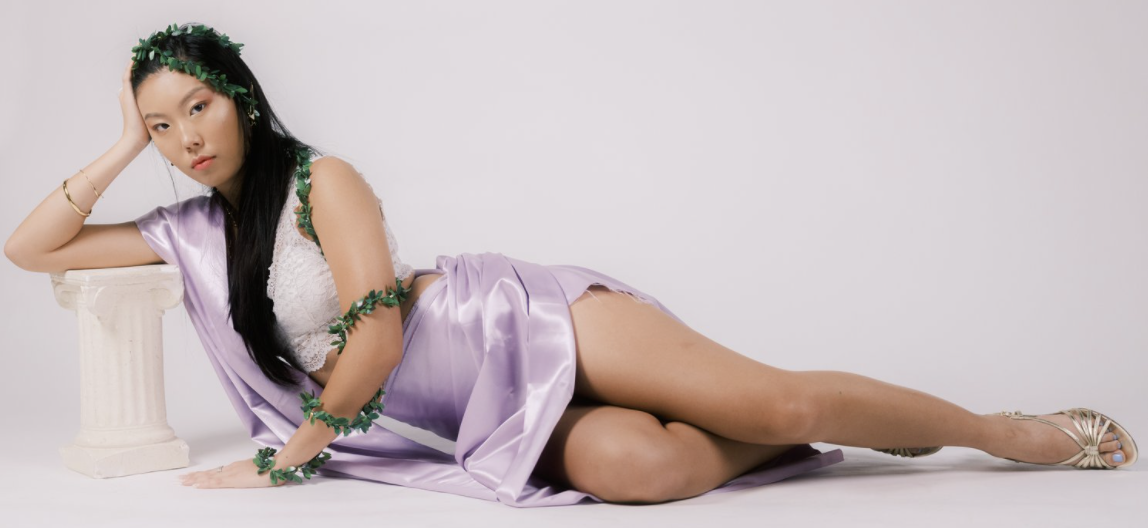
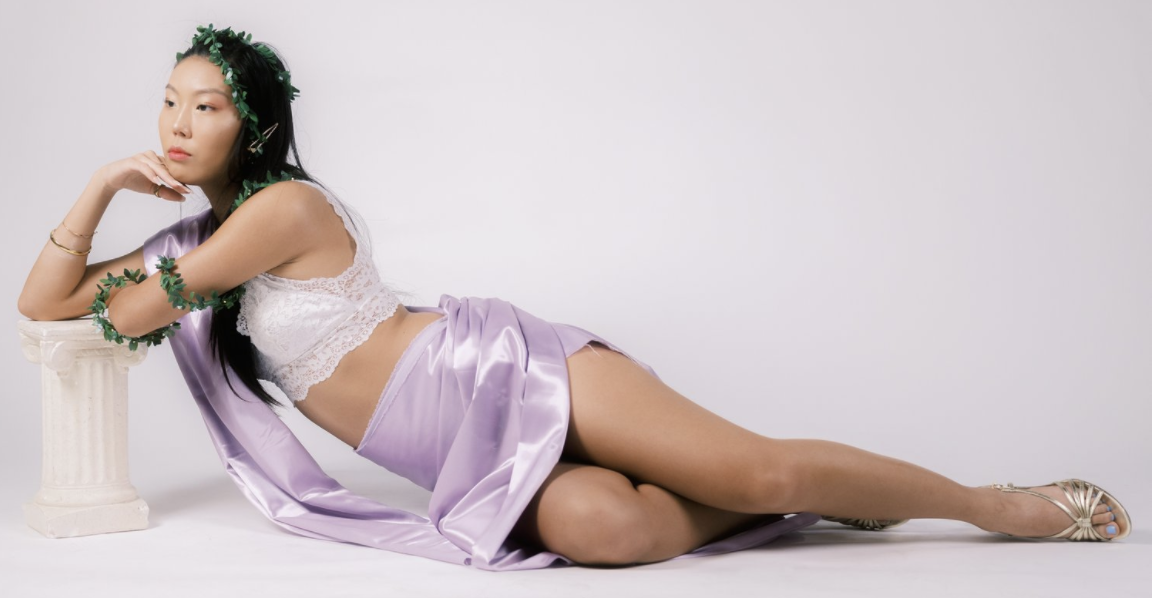
Over the span of the first episode, Usagi is told she is one of the “Pretty Sailor Guardians of Love and Justice, Sailor Moon” and transforms into her persona with the words, “Moon Prism Power, Make Up!”. I watched, eyes glued to the boxy television, as Usagi evolved into a pretty guardian, clad in tall high heels, a big hot pink bow, and a tiara to top it all off. Enamored, I thought to myself, “Now this is what being girly means”. I was excited as the premise of the show had clicked something in my little brain, but I was also insanely bitter. While being a girl seemed to be my downfall, it was what made Usagi into a badass female-warrior destined to save the world.
A show about fighting evil in short skirts and hot pink seemed so impossible to me at the time, I thought I had to be dreaming. Regardless, the episode hooked me, and I continued to catch every airing of the show. Slowly but surely, my desire to participate in the boyish games of my childhood left me. With every episode, I became more attracted to the idea of femininity and the color pink, all while my desire to be “boyish” vanished. And with each monster Sailor Moon defeated, I watched her closely, as any eager student would a teacher.
The next few years, I religiously followed Sailor Moon’s journey and watched as she made friends, all of them equally as powerful and beautiful. In short, I thought they were divine. After seeing the Sailor Scouts, a group of girls banding together to fight evil, I stopped listening to anyone but them about femininity. I listened when they fought evil, still in their skirts and nail polish. I listened when they, between adventures saving the world, still had time for boys and shopping. I listened when Usagi, despite being a crime-fighting goddess, still cried when things didn’t go her way. I was listening to everything they said, and along the way, I fell in love.
Growing up in Malaysia, with a government where homosexuality got you killed, I never really thought of my attraction to femininity as anything but admiration. But as I learned about the homophobic laws set in my home country, I knew the entire world had gotten it wrong and that me, barely even seven, had gotten it right.
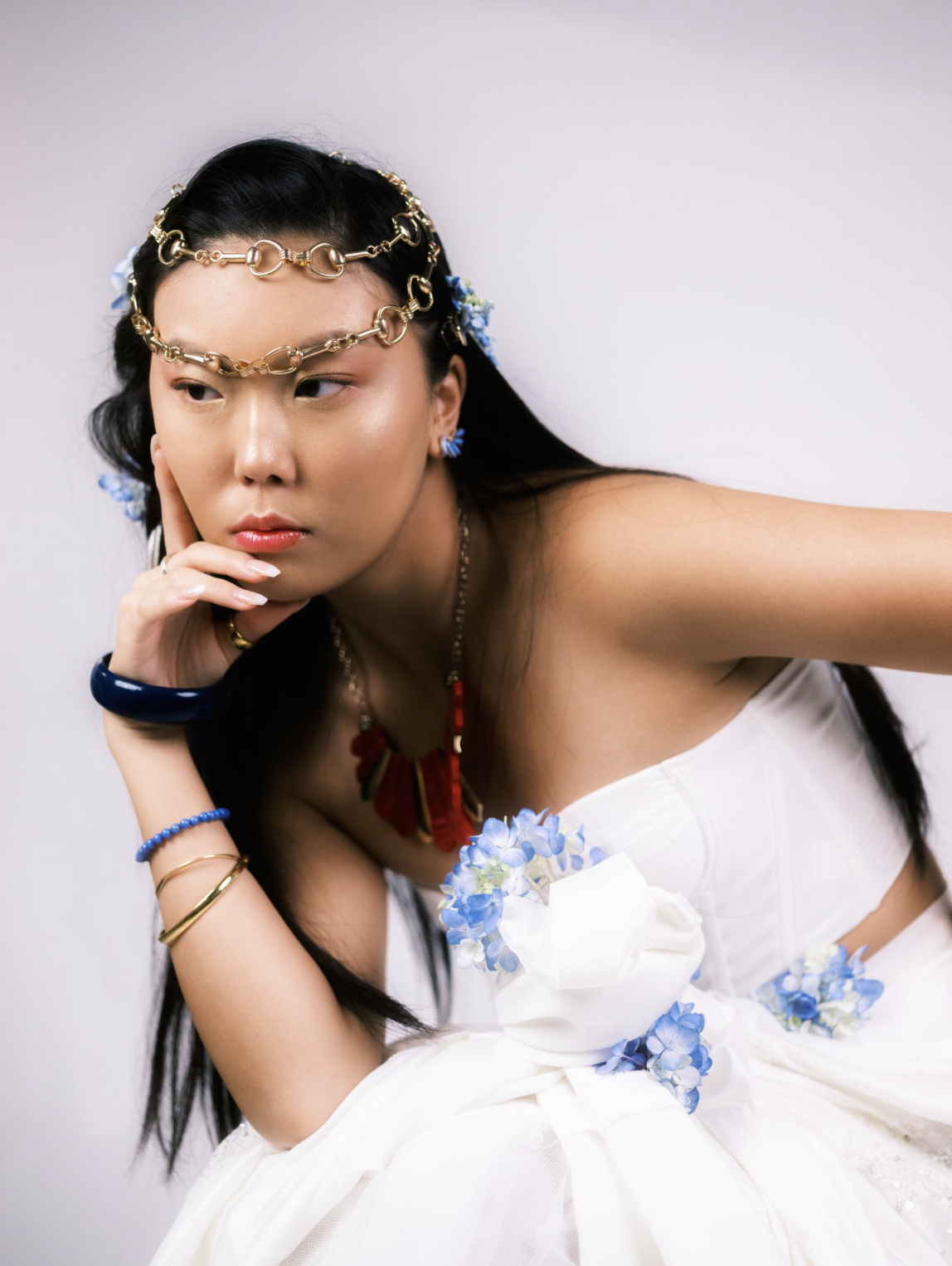
I later came to realize, with the help of more western media, that the entire world was not homophobic. But when you are young, you are more inclined to feel as if the whole world is against you, especially in times of confusion. Though once I realized my blatant attraction to these powerful, feminine figures, I was astute enough to know not to tell anyone.
I never found this hard. Growing up, I was always left to my own devices and developed into a very private person. In a way, I have always been independent and felt my thoughts could remain the same. Don’t get me wrong, I never lied, although this was only because no one thought to ask me about my attraction to anyone but boys. But if I wasn’t lying to myself or to anyone else, I was always living my truth. Going forward, the hardest part wasn’t keeping it in, but feeling as if I had unlocked something others had not. In the coming years, hearing homophobic and misogynist language used casually in my daily life felt jarring and impossible to me. How could love be wrong? Nothing had ever felt right until this point.
I was never stubborn. Never headstrong, never willful. I cried the moment anyone yelled at me, gave in at any confrontation. I was shy to anyone I didn’t know and yielded anytime I was faced with anger. I now joke about this tendency being due to the lack of Earth in my astrological chart, but in reality, being a younger sister had crafted me as complacent. My sister was the one who could stand up to authority, be angry, and most importantly, stubborn. I simply had to stay quiet and life was peaceful.
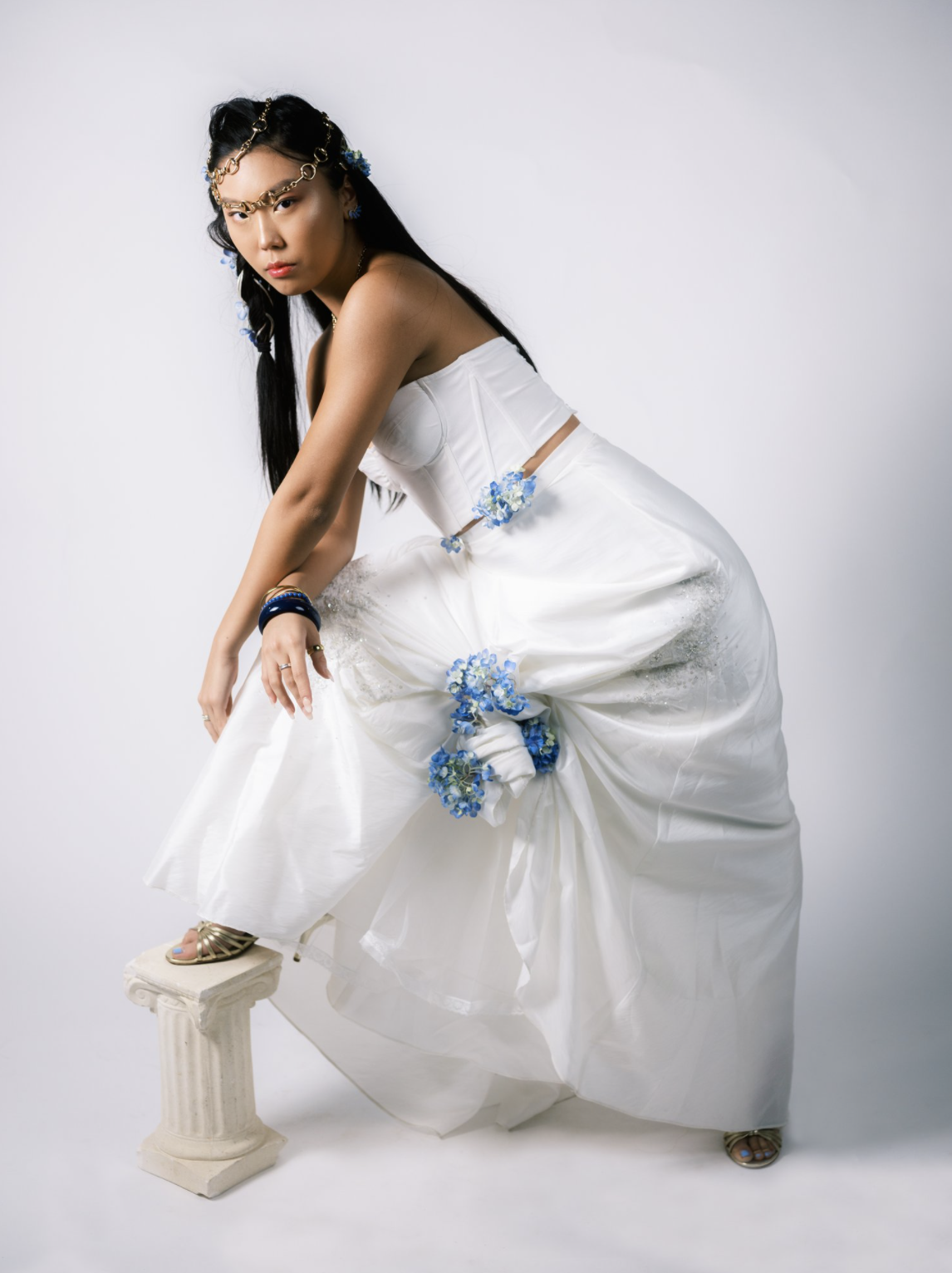
However, Sailor Moon and the feminine power I observed for years in the show, forged my bendable disposition into something strong and immovable, not unlike how becoming a sailor scout had changed Usagi. In this unlocked knowledge of the divine feminine along with my newly discovered and undeniable attraction, I became headstrong, steady, and transformed. I never gave it a voice, but I always knew no one could tell me I was wrong when this pocket realm of truth was the only thing I truly ever stood for.
Now, as an adult aware of the meaning behind my youthful attractions, I look back at the path I have carved for myself. I keep this childhood stubbornness like a frayed piece of paper in the back of my pocket, and it reads:
“You did not break then, and you will not break now.”
Young, alone, and impressionable, with the words “Moon Prism Power, Make Up!”, I witnessed Usagi transform, and in a way, myself as well. ■
Model: Jane Liu
HMUA: Meryl Jiang
Stylist: Emily Wager
I truly despised it at the time, but for all the wrong reasons. Pink, I thought, symbolized weakness, prettiness, and worst of all, being girly. I believed that if I hated pink, I could somehow banish all possibilities of these labels. However, I knew deep down that I didn’t have any issue with the color itself, and even deeper down I think I knew I had always liked pink. But when you are born a girl, one of the inevitable steps in your development is this moment of realization that being feminine was something to be embarrassed about.
For me, the realization hit me when I was five. The first instance was with my pink gameboy, which I religiously played Mario Kart with under the alias, “PinkBunny27”. I never won and soon resulted in cheats to help me. My older cousins teased, “You play like a girl!”. As the youngest sister and cousin, I believed anything my older relatives told me, and as a result, I began to resent my gender.
Vividly, I recall one of the many Sundays I spent at my cousins’ house. They shunned me when they played Runescape upstairs, a game that I was not allowed to partake in. Only boys or “tomboys” could play a medieval role-playing game, not little girls who liked pink. Being girly seemed to be my downfall, and I hated myself everyday for it.
Outcasted and alone, I flicked on the TV and settled myself into the leather sofa, fit to sulk for the rest of the day. Flipping through the channels to find something more interesting than the news, I stumbled across the title: “The Crybaby: Usagi’s Beautiful Transformation”. As a certified crybaby myself, I couldn’t resist clicking.
An animated girl with long blonde hair flickered on the screen and introduced herself as Usagi Tsukino, a klutz and a crybaby. Immediately, I saw myself mirrored in Usagi’s character and everything she did. Like me, she was tired all the time, cried when she was teased, failed her tests, and more importantly, she was obsessed with the famous female-warrior, Sailor V. Until this moment, I had never seen anyone worship femininity, but I was awed and admittedly a little jealous that she did it so freely. Everywhere I went I felt ashamed of being girly, but here was Usagi, freely telling everyone she had a girl-crush. Life felt unfair.


Photos by Kaushik Kalidindi
Over the span of the first episode, Usagi is told she is one of the “Pretty Sailor Guardians of Love and Justice, Sailor Moon” and transforms into her persona with the words, “Moon Prism Power, Make Up!”. I watched, eyes glued to the boxy television, as Usagi evolved into a pretty guardian, clad in tall high heels, a big hot pink bow, and a tiara to top it all off. Enamored, I thought to myself, “Now this is what being girly means”. I was excited as the premise of the show had clicked something in my little brain, but I was also insanely bitter. While being a girl seemed to be my downfall, it was what made Usagi into a badass female-warrior destined to save the world.
A show about fighting evil in short skirts and hot pink seemed so impossible to me at the time, I thought I had to be dreaming. Regardless, the episode hooked me, and I continued to catch every airing of the show. Slowly but surely, my desire to participate in the boyish games of my childhood left me. With every episode, I became more attracted to the idea of femininity and the color pink, all while my desire to be “boyish” vanished. And with each monster Sailor Moon defeated, I watched her closely, as any eager student would a teacher.
The next few years, I religiously followed Sailor Moon’s journey and watched as she made friends, all of them equally as powerful and beautiful. In short, I thought they were divine. After seeing the Sailor Scouts, a group of girls banding together to fight evil, I stopped listening to anyone but them about femininity. I listened when they fought evil, still in their skirts and nail polish. I listened when they, between adventures saving the world, still had time for boys and shopping. I listened when Usagi, despite being a crime-fighting goddess, still cried when things didn’t go her way. I was listening to everything they said, and along the way, I fell in love.
Growing up in Malaysia, with a government where homosexuality got you killed, I never really thought of my attraction to femininity as anything but admiration. But as I learned about the homophobic laws set in my home country, I knew the entire world had gotten it wrong and that me, barely even seven, had gotten it right.

Photo by Kaushik Kalidindi
I later came to realize, with the help of more western media, that the entire world was not homophobic. But when you are young, you are more inclined to feel as if the whole world is against you, especially in times of confusion. Though once I realized my blatant attraction to these powerful, feminine figures, I was astute enough to know not to tell anyone.
I never found this hard. Growing up, I was always left to my own devices and developed into a very private person. In a way, I have always been independent and felt my thoughts could remain the same. Don’t get me wrong, I never lied, although this was only because no one thought to ask me about my attraction to anyone but boys. But if I wasn’t lying to myself or to anyone else, I was always living my truth. Going forward, the hardest part wasn’t keeping it in, but feeling as if I had unlocked something others had not. In the coming years, hearing homophobic and misogynist language used casually in my daily life felt jarring and impossible to me. How could love be wrong? Nothing had ever felt right until this point.
I was never stubborn. Never headstrong, never willful. I cried the moment anyone yelled at me, gave in at any confrontation. I was shy to anyone I didn’t know and yielded anytime I was faced with anger. I now joke about this tendency being due to the lack of Earth in my astrological chart, but in reality, being a younger sister had crafted me as complacent. My sister was the one who could stand up to authority, be angry, and most importantly, stubborn. I simply had to stay quiet and life was peaceful.

Photo by Kaushik Kalidindi
However, Sailor Moon and the feminine power I observed for years in the show, forged my bendable disposition into something strong and immovable, not unlike how becoming a sailor scout had changed Usagi. In this unlocked knowledge of the divine feminine along with my newly discovered and undeniable attraction, I became headstrong, steady, and transformed. I never gave it a voice, but I always knew no one could tell me I was wrong when this pocket realm of truth was the only thing I truly ever stood for.
Now, as an adult aware of the meaning behind my youthful attractions, I look back at the path I have carved for myself. I keep this childhood stubbornness like a frayed piece of paper in the back of my pocket, and it reads:
“You did not break then, and you will not break now.”
Young, alone, and impressionable, with the words “Moon Prism Power, Make Up!”, I witnessed Usagi transform, and in a way, myself as well. ■
Model: Jane Liu
HMUA: Meryl Jiang
Stylist: Emily Wager
Other Stories in Culture
© 2025 SPARK. All Rights Reserved.
